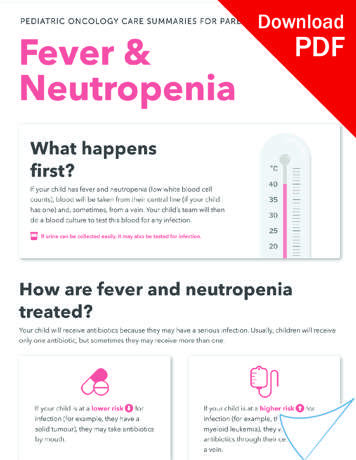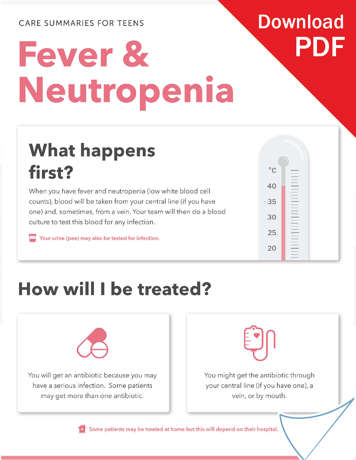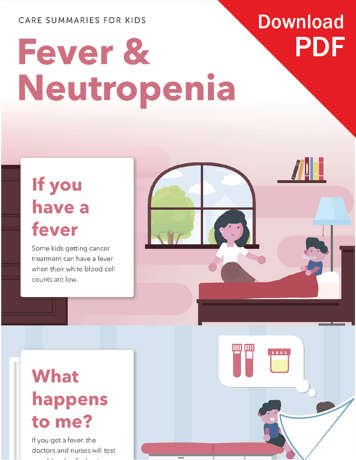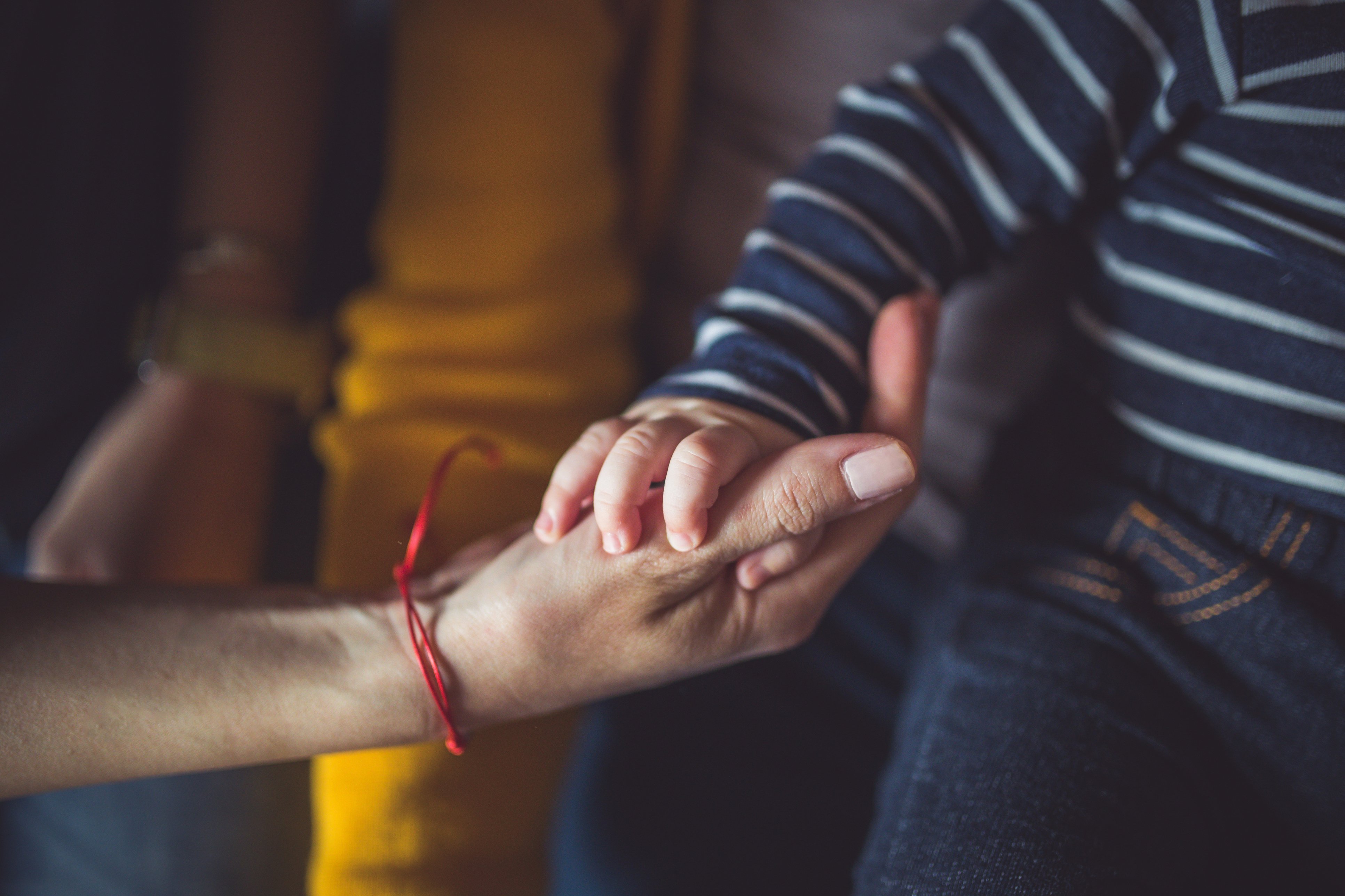What is fever and neutropenia?
When a child receives treatment for cancer, they are at risk of infections. Sometimes these infections can be serious. At times the number of white blood cells can decrease to very low amounts. This is called neutropenia. It is during this time when the risk of having a serious infection is higher.
Often, a fever is the first sign of an infection. This is why all children who have a fever during cancer treatment need to be evaluated urgently. If the doctor finds that the child has low white blood cells (neutropenia), they will start your child on antibiotic treatment at once.
Fever
A fever is part of the body's response to infection. Your child has a fever if their:
- temperature is 38.3°C or more by mouth one time, or;
- temperature is 38°C or more by mouth for one hour or more.
Whenever possible, take your child's temperature by mouth. Only take your child's temperature under the arm if you cannot take it by mouth.
When checking for fever under your child's arm, your child has a fever if their:
- temperature is 37.8°C or more under the arm one time, or;
- temperature is 37.5°C or more under the arm for one hour or more.
Neutropenia
The blood contains a type of white blood cell that helps the body protect itself from infection. These blood cells are called neutrophils. Healthy people usually have more than 1.5 x 109 neutrophils for every litre of blood. Neutropenia happens when the number of neutrophils in the blood decreases to less than 0.5 x 109 cells/litre.
How is fever and neutropenia treated?
If your child develops a fever, a health-care provider in the Emergency Department or the Haematology/Oncology Clinic will evaluate your child. They will check your child's white blood cell count. If they find that your child is neutropenic, your child may be:
- admitted to the hospital and treated with antibiotics, intravenously (IV) or orally
- prescribed oral antibiotics to take at home. Your child's Haematology/Oncology team will decide which treatment option is best for your child.
What will happen if my child can receive treatment for fever and neutropenia at home?
In the Emergency Department or the Haematology/Oncology Clinic:
- Your child may receive one dose of IV or oral antibiotics.
- Your child will then be sent home on oral antibiotics under the care of at least one parent (or alternate) that can stay with your child at home (not in daycare or school).
What you need to do if your child is being managed at home:
- Record each time you give your child their antibiotic on the medication calendar.
- Take your child's temperature every four hours and record it in the temperature diary.
- Bring your child to the Haematology/Oncology Clinic for a check-up until they stop your child's treatment for neutropenia. Your child's Haematology/Oncology team will let you know how often and when to come into the clinic for a check-up.
- If your child looks ill at any time, if your child throws up the antibiotic, or if you have concerns about your child, call the Contact Nurse or the Haematology/Oncology Fellow-on-Call.
For more information, watch the video on Neutropenia and chemotherapy for acute lymphoblastic leukemia.
At SickKids
Before leaving the Emergency Department, you will be given:
- a 72-hour supply of antibiotics to be given by mouth
- a Temperature Diary & Medication Calendar
- an appointment for a follow-up appointment in the clinic
When managing your child's neutropenia at home:
- Come to the Haematology/Oncology clinic for your child's check-up on Mondays, Wednesdays and Fridays until your child's doctor or nurse stops treatment.
- It is important that you speak with a member of the SickKids team every day about your child. On days when you do not come to the clinic, call your child's Contact Nurse, Tuesdays and Thursdays and the Haematology/Oncology Fellow-on-Call on weekends between the hours of 8:30 a.m. and noon to report your child's temperatures and progress.
- If you are ever concerned about your child, call our Contact Nurse (Monday through Friday during the day) or the Haematology/Oncology Fellow-on-Call at 416-813-7500 after 5:00 p.m. or anytime on the weekends.
Additional resources
The following SPARK Care Recommendations are intended to inform families of children undergoing cancer treatments. Seek the care of a health-care professional if you have any questions regarding SPARK Care Recommendations or your child’s diagnosis or symptoms.
For parents & caregivers

For teens

For kids


